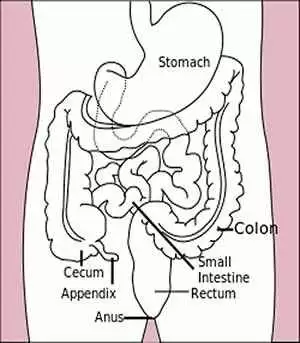Celiac.com 06/14/2013 - A team of researchers recently conducted a controlled trial of gluten-free diet in patients with irritable bowel syndrome-diarrhea to gauge the effects on bowel frequency and intestinal function. Their goal was to determine whether a gluten-free diet might benefit patients with diarrhea-predominant irritable bowel syndrome (IBS-D).
 The team included M.I. Vazquez-Roque, M. Camilleri, T. Smyrk, J.A. Murray, E. Marietta, J. O'Neill, P. Carlson, J. Lamsam, D. Janzow, D. Eckert, D. Burton, A.R. Zinsmeister. They are variously affiliated with the Clinical Enteric Neuroscience Translational and Epidemiological Research at the Mayo Clinic in Rochester, Minnesota, and the Division of Gastroenterology and Hepatology at the Mayo Clinic in Jacksonville, Florida.
The team included M.I. Vazquez-Roque, M. Camilleri, T. Smyrk, J.A. Murray, E. Marietta, J. O'Neill, P. Carlson, J. Lamsam, D. Janzow, D. Eckert, D. Burton, A.R. Zinsmeister. They are variously affiliated with the Clinical Enteric Neuroscience Translational and Epidemiological Research at the Mayo Clinic in Rochester, Minnesota, and the Division of Gastroenterology and Hepatology at the Mayo Clinic in Jacksonville, Florida.
Celiac.com Sponsor (A12):
The team designed a randomized controlled 4-week trial comparing the effects of a gluten-containing diet against gluten-free diet in 45 patients with IBS-D.
They conducted genotype analysis for HLA-DQ2 and HLA-DQ8, and randomly placed twenty-two patients on the gluten-containing diet (11 HLA-DQ2/8 negative and 11 HLA-DQ2/8 positive) and 23 patients on the gluten-free diet (12 HLA-DQ2/8 negative and 11 HLA-DQ2/8 positive).
They measured daily bowel function, small-bowel and colonic transit. They used lactulose and mannitol excretion to measure mucosal permeability, and peripheral blood mononuclear cells after exposure to gluten and rice to gauge cytokine production.
The team collected rectosigmoid biopsy specimens from 28 patients, analyzed levels of messenger RNAs encoding tight junction proteins, and performed H&E staining and immunohistochemical analyses.
They analyzed covariance models to compare data from the gluten-containing and gluten-free diet groups.
They found that subjects on the gluten-containing diet had more bowel movements per day (P = .04); the gluten-containing diet had a greater effect on bowel movements per day of HLA-DQ2/8-positive than HLA-DQ2/8-negative patients (P = .019).
They also found that the gluten-containing diet was associated with higher SB permeability, based on 0-2 h levels of mannitol and the ratio of lactulose to mannitol. They found that SB permeability to be greater in HLA-DQ2/8-positive than HLA-DQ2/8-negative patients (P = .018), and saw no significant differences in colonic permeability.
Patients on the gluten-containing diet had a small decrease in expression of zonula occludens 1 in SB mucosa and significant decreases in expression of zonula occludens 1, claudin-1, and occludin in rectosigmoid mucosa.
The effects of the gluten-containing diet on expression were substantially greater in HLA-DQ2/8-positive patients. Neither diet had any significant effects on transit or histology.
Peripheral blood mononuclear cells produced higher levels of interleukin-10, granulocyte colony-stimulating factor, and transforming growth factor-α in response to gluten than rice, regardless of HLA genotype.
The team's findings show that gluten alters bowel barrier functions in patients with IBS-D, especially in HLA-DQ2/8-positive patients, and that these aspects of IBS can be reversed with a gluten-free diet.
Source:
- Open Original Shared LinkOpen Original Shared Link





Recommended Comments